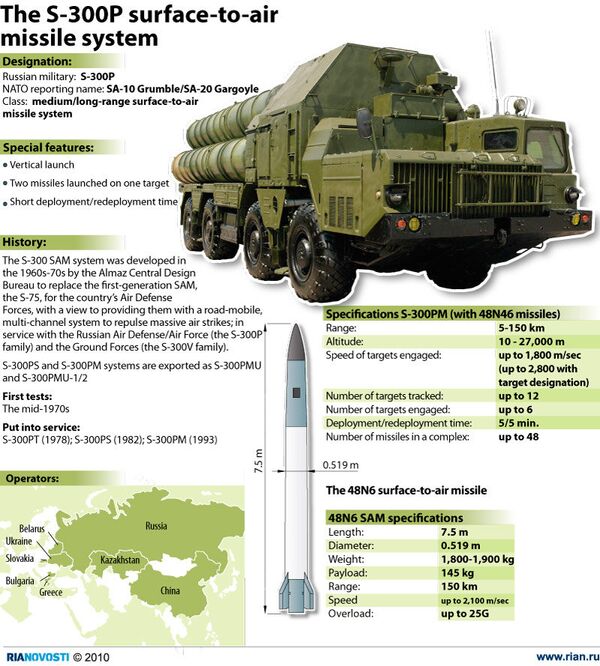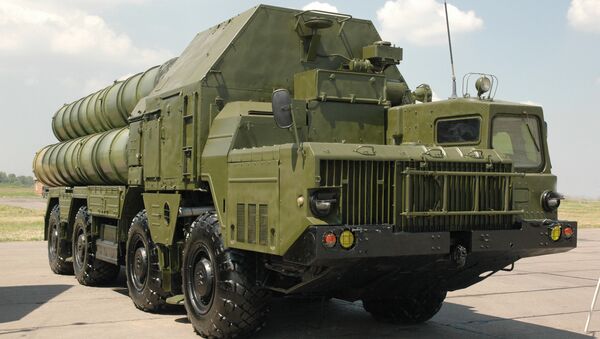MOSCOW, July 31 (RIA Novosti) – Iran and Russia have not discussed Moscow’s tentative offer to supply Tehran with Antei-2500 surface-to-air missile systems instead of the S-300, whose sale was previously blocked by the Kremlin, Iran’s envoy to Russia said Wednesday.
“As for the Antei-2500 [missile] systems, it’s just words,” Seyed Mahmoud-Reza Sajjadi told RIA Novosti. “There were no agreements, and there are no talks [on the matter].”
“We’re waiting for Russia’s concrete proposals,” he added at a press conference later the same day.
Russia agreed in 2007 to supply Iran with then state-of-the-art S-300 air defense systems, but scrapped the deal in 2010, unilaterally expanding on sanctions ordered by the UN (Resolution 1747) against that country over its alleged nuclear weapons development program.
The ban on the S-300 deal was ordered by then-President Dmitry Medvedev, following intense lobbying by the United States.
Tehran filed a $4 billion lawsuit against Moscow for compensation for failing to complete the deal. Moscow is now trying to settle the matter out of court.
Kommersant daily reported in June that Russia was ready to supply the Antei-2500 air defense system, itself a modification of the S-300 and superior to early variants of that system in capability, but this was never officially confirmed.

The paper quoted unnamed sources in the Russian arms industry who claimed that Antei-2500, a modification originally developed for Russia’s ground forces, did not technically come under the remit of Medvedev’s ban, but the sources did not explain on what grounds.
The designation S-300 is a blanket term for a family of related air defense systems, including radars, command posts and several different missiles, with a range of capabilities, including the ability to intercept cruise and ballistic missiles, defense analysts say.
Possibly hinting at a chill in relations, Sajjadi also denied Wednesday that Russian President Vladimir Putin plans to visit Iran for talks with his newly elected counterpart Hassan Rouhani in mid-August.
“The matter of Putin’s visit is not even being discussed,” Sajjadi said, adding that the speaker of the lower house of the Russian parliament, Sergei Naryshkin, will represent Russia at Rouhani’s inauguration on August 3.
Putin and Rouhani will have their first meeting at a summit of the Shanghai Cooperation Organization in Bishkek on Sept. 13, Sajjadi said later at his press conference.
Putin is slated to tour the Caspian Sea littoral nations in mid-August, but not Iran. Kommersant said last week Moscow and Tehran had failed to agree on whether Rouhani should come to visit Putin in the port city of Bandar-e Anzali, or whether the Russian president would visit the Iranian capital.
A Kremlin spokesman said last week Putin’s trip to Iran was on the cards, but gave no timeframe.
Iran is also ready to hold another round of talks in September with the 5+1 group, comprising the five permanent UN Security Council members plus Germany, Sajjadi said. He said it was up to the group to give an exact timeframe.
(The story was updated with Sajjadi comments on Antei-2500, SOC summit, 5+1 talks.)


